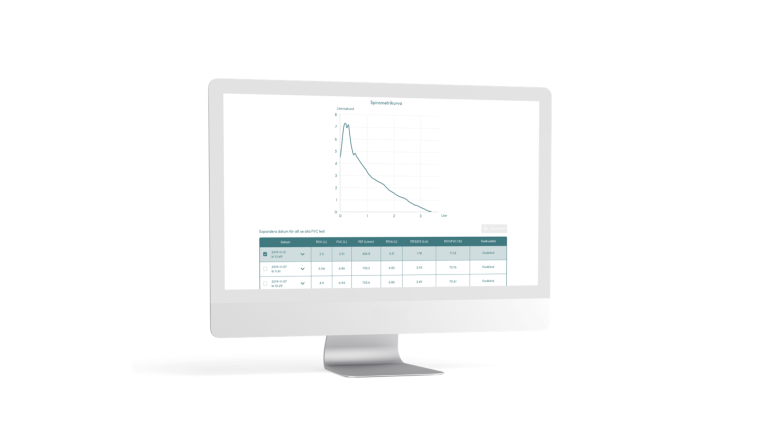What are the different levels of asthma?
The severity of asthma determines which step you fall on in the treatment ladder, meaning what medications you should take and how much you will need. There are three levels of asthma: mild, moderate, and severe.
The most important thing for you as a patient is not the severity of your asthma but that you achieve control over your asthma with the right medication, regardless of its severity.
Mild asthma
With mild asthma, symptoms are typically infrequent or not particularly severe. They may include shortness of breath, coughing, wheezing, or fatigue that comes and goes. Symptoms might occasionally occur during physical exertion or in response to certain triggers, but they do not significantly affect your daily life.
Treatment for mild asthma may involve using a rescue inhaler as needed. New guidelines recommend that asthma be treated with inhalers containing inhaled corticosteroids, regardless of its severity.
Moderate asthma
In moderate asthma, symptoms are more frequent and may persist for longer periods. They can affect your daily life and limit your activities. Treatment typically involves regularly using asthma medication.
Severe asthma
Severe asthma is characterized by very serious symptoms that may be recurrent or constant. These symptoms significantly impact your daily life and are difficult to control. Often, high doses of asthma medication are necessary, along with more frequent follow-ups with a specialist.
Approximately 5% of all individuals with asthma have severe asthma. In these cases, achieving full symptom control can be challenging, even with maximum medication.
Severe asthma vs. difficult-to-treat asthma
It is important to distinguish between severe asthma and difficult-to-treat asthma, as the symptoms often appear similar. Difficult-to-treat asthma is often due to poor self-management, especially when it comes to taking asthma medication regularly. Many people forget to take their medication daily or may use their inhaler incorrectly. However, it’s not always the individual's "fault"; low adherence can also be a result of limited access to care and education. Most individuals initially assessed as having "severe" asthma can feel completely well with the right treatment.



